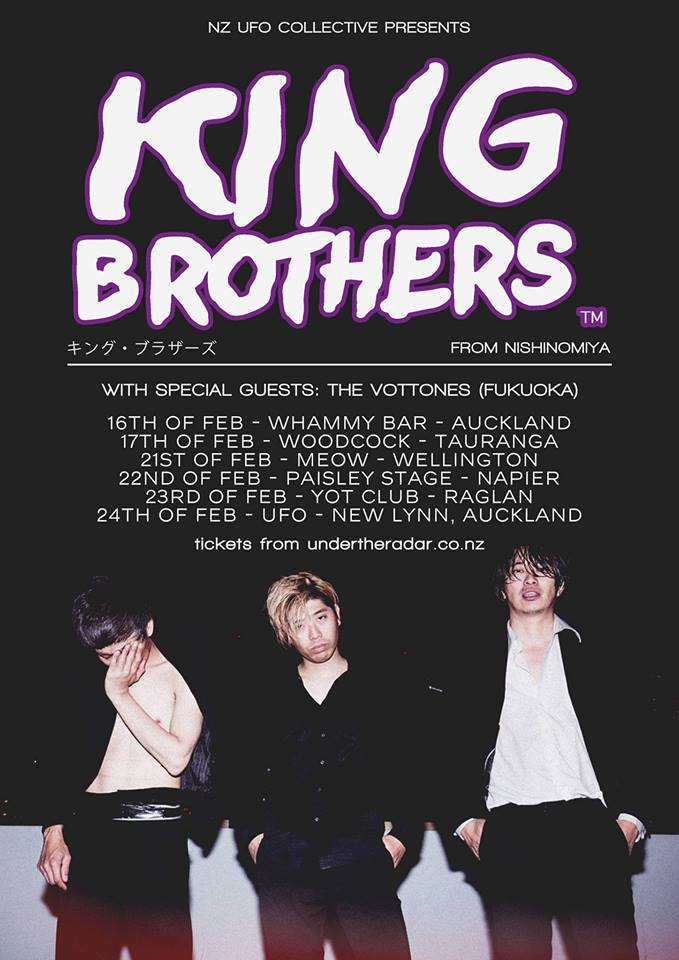The King Brothers
w/ The DHDFD’s
The Vottones
Unsanitary Napkin
Meow, Wellington
Wednesday 21 February 2018
I gotta say, before you scroll down, be aware that this review and the photos embedded are not safe for work. Seriously. If your boss catches you looking at some of these images during work hours you are going to have to have a very awkward conversation. This is not appropriate workplace content. This cannot be considered decent by any stretch of the imagination. It’s downright depraved. Got it? Well then read on…
Watching Unsanitary Napkin made me regret that I’ve become estranged from the Wellington punk scene. I used to get along to many more punk shows, but the frequency decreased as many of my friends in hardcore bands disbanded. I still crave a taste of that intense abandon now and again, but don’t get my fix nearly as often as I should. Unsanitary Napkin reminded me of when PEARS opened for Strung Out – hyper aggressive and slightly unpredictable. The two guys in the rhythm section sported proper mops – a shaggy one on bass and a Beatles-esque mop on drums. Long hair always has potential to visually enhance a show, and it was great to see the players whip it around as they played. The vocals coming from the girl on guitar came totally unexpected. She was channeling some heavy stuff, because the coarse shrieking didn’t sound natural. It was weird seeing these demons tear through violent songs, only to transform into cutesy “aw shucks” embarrassed kids between songs. I’ll award points for intensity, but then dock a few for the lack of confidence between songs. Fake it til you make it!
This slideshow requires JavaScript.
I glanced sideways at my friend Paris. I’d met up with her for dinner last week for a catch up seeing as she had just returned from a big stint abroad. She’d mentioned that she was keen to catch more live music and I invited her to this, the next gig I was planning to go to. Clearly I hadn’t put much thought into that, and now the poor girl was getting irreversibly scarred from this experience I’d recommended.

Next up were Vottones. wow… what a band!
They delighted in vulgarity. Raw, unrepentant filth. I didn’t understand much of what was said, except for lots of “fuck you”s, an MC5 cover, and repeated chanting of the line “I AM DIARRHOEA”. Class, pure class. This is what I’ve come for.
At one point the singer gestured to his chest as he introduced a song. Is he pointing to his heart? Because if so, it’s the wrong side. Moments later I see that, no, not the heart. He is definitely pointing to his nips with both hands. Just to hammer the point home, he walked along to the bassist to jerk his shirt up and put his microphone to a saggy man-breast while he played. What is this, singing titty hour?

Abusing the bassist didn’t stop there. The band riffed the tune to Sabbath‘s “Iron Man” as he removed his own shirt, grabbed the mic and stepped down into the crowd to sing. Although he didn’t stop there. He walked through the audience and out of the venue. It got to the point that he’d walked so far the mic lead had pulled out, but that didn’t stop him from furiously shouting into it. Upon returning to the front of stage, the singer jumped down and gave poor bass-man the wedgie from hell. As in, pulled the stressed undergarments so hard that he practically tore them in two. He then crouched down and put his head through the undie hole and allowed himself to get dragged around by his new noose, continuing to play guitar.
They also invited someone from the audience up onstage for a guitar duel at one point. I think they knew him – he could definitely play guitar well – but he could have been a random for all I know. I’ve been in that situation myself, pulled up onstage to play guitar for a band (although I don’t know how to play guitar).
This slideshow requires JavaScript.
People think I’m weird for going to these kinds of things. And they’re 100% correct. But they don’t know what they’re missing out on. Last year I saw a guy dressed as an astronaut duet with puppets. A few months ago I played guitar with the legendary Guitar Wolf. These are the experiences that make you know that you are truly living. Sometimes the path to enlightenment involves watching half-naked foreign men violate all concepts of decency in dimly lit bar on a Wednesday night. I don’t make the rules – that’s just how it is.
The hilarious thing is that after the set the guys from Vottones got changed from their leather rock gear into standard clothing. It’s weird to see a man walking around in baggy jeans and a cute sweater, knowing that just 10 minutes ago he was a vile rock lord. It shatters illusions to see that he was a nice guy in comfy clothes commenting on how good the chicken on the menu tastes.

The DHDFD’s came across as a weird cross between Deja Voodoo and The Datsuns. I know, it doesn’t make sense to me either, but that’s how it was – both terribly dero and stylistic. Scott on vocals was rocking the timeless outfit of only stubbies and a trucker cap, while his bandmates either side of him wore dress shoes. It was snotty punk with odd tangents. “We wrote this one after snorting meth, thinking that it was speed”, Scott explained, before popping a Gollum squat on a table amidst the audience for the next song. I would consider this set mad enough on any given day, but sandwiched between two crazy Japanese acts made it look mild by comparison.
This slideshow requires JavaScript.
Next up were the headliners- the almighty King Brothers. During soundcheck the drummer let loose and I found my attention snatched away from the conversation I was having with Paris. Dude has chops! It’s unfair really – borderline cheating. I came here to witness energy, aggression. Wild, untamed insanity. Stage dives and gimmicks. But musical talent? That’s just not punk rock!

The trio dressed sharply in suits, adding an edge of sophistication to their set. The started off with a bang, with the bass and guitar players climbing onto speakers and jumping off in unison.
The lead vocalist with greying hair dominated as the life of the party. “COME CLOSER!” he shouted, beckoning to us. “COME CLOSER!” As soon as a mass of bodies had collected in front of him he sprang off the stage, the first of countless croudsurfing sessions during the set.

I’m not sure who was most standout in the King Brothers. The floor adverse singer certainly deserves a mention. A madman front and centre, demanding attention and acting out like a toddler. He shouted and swore, climbing on things and calling for people to put him up and carry him around. But then the other two onstage held it down professionally, with their unceasingly good brand of rock. Usually either the music or the show suffers at expense of the other, but in this case both the madness and the talent impressed.
The most excellent moment was when the vocalist ran into the crowd, snatched a girl’s drink, sculled it down, grabbed a dude nearby for a quick pash, and before you know it was back onstage.
Towards the end the band picked up the drumkit and re-assembled it in the middle of the floor, continuing the set in the centre of the crowd. Our madman friend, shirtless by this point, circled his bandmates above their heads, doing donuts whilst crowdsurfing.
It’s an overused cliché, I know. But dammit I was speechless after that show. I just stood near the bar, mouth slightly ajar, trying to process everything I’d just experienced. Just… just… uh… woah. That was rock and roll. That was a show.
This slideshow requires JavaScript.
It’s bittersweet really. I had such a blast. I thoroughly enjoyed every wretched minute. But I am sad knowing that I’ll unlikely ever see a show that good again.
Photographer Connor Crawford recently posted a photo from King Brother’s Auckland show, captioned “King Brothers are the greatest band in the world”. I can 100% see where he comes from. Up until now Iron Maiden and Guitar Wolf both laid claim for my greatest live shows, but I think that I may need to revise this now.
And as for my friend Paris? Well yeah, she may need to get therapy at some point down the track, but she had the time of her life, and was grinning from ear to ear by the end of it.
Words and photos by Joseph James
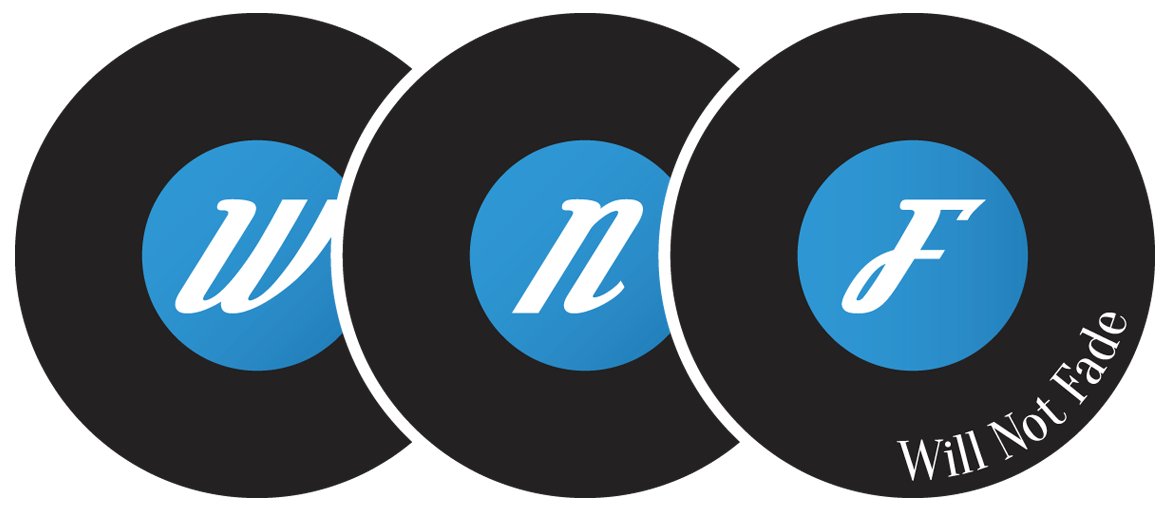
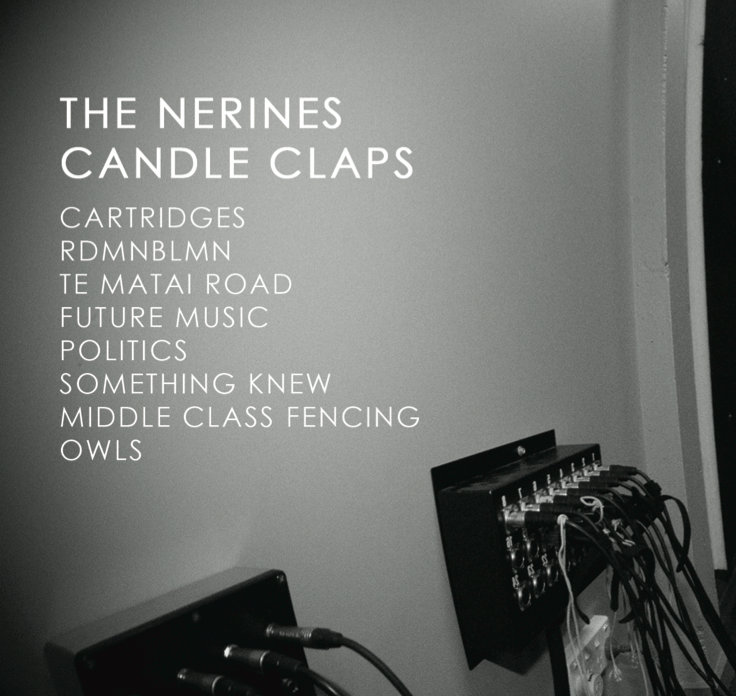
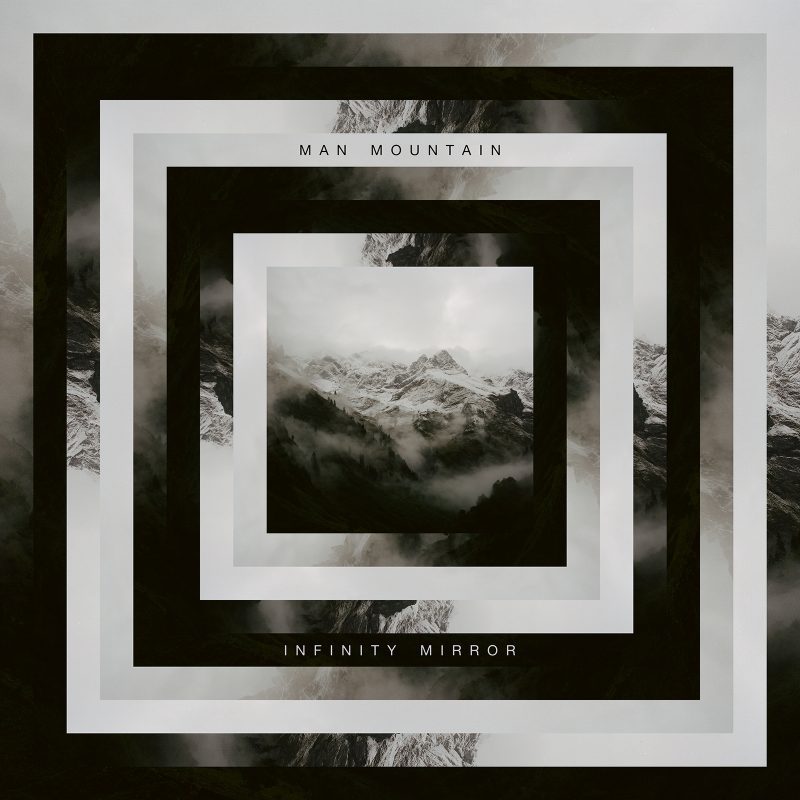




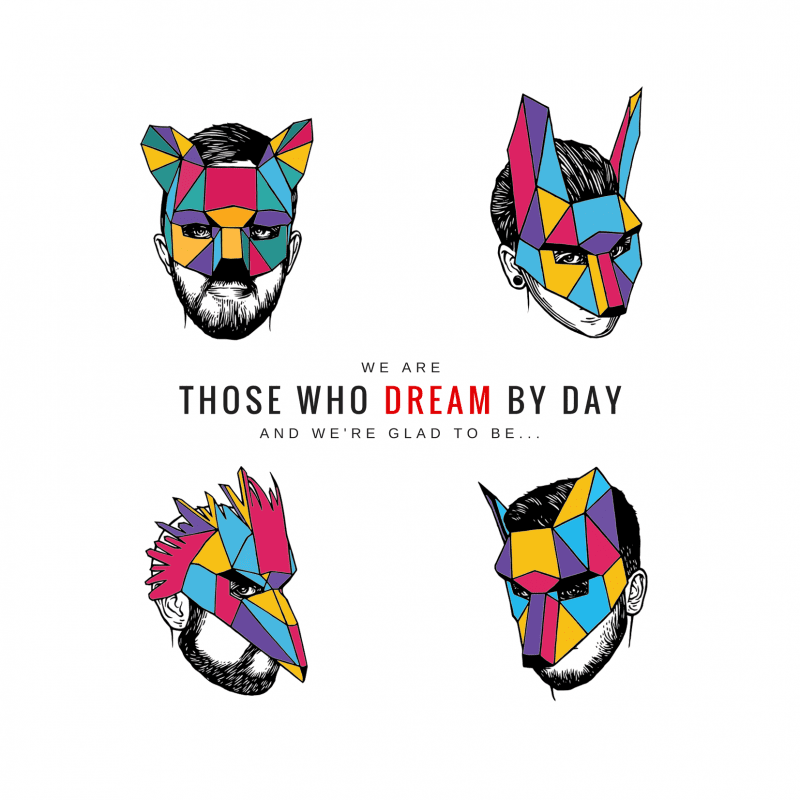

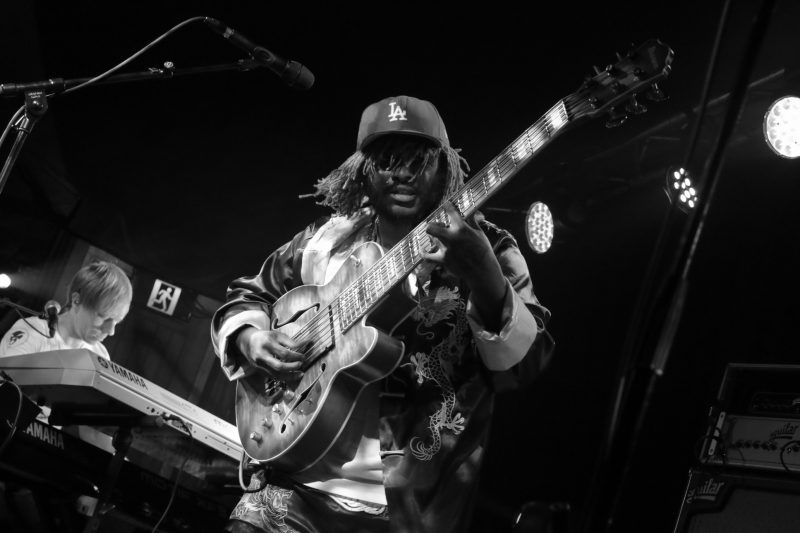

 I think as a general rule, most guitarists own a pedal board the size of approximately three newborn babies, dotted with small boxes that boast dials and flashing lights that sometimes enhance their overall tone, but are more likely there for show. Bass players tend to cope with less – usually two fewer strings and smaller pedal boards – although they compensate by having heavier amps and speakers. Thundercat didn’t even have a pedal board. He just had two effects pedals and a setlist sat upon a music stand at waist height. That said, he managed to pull off some of the most unearthly tones you’ll ever hear come from a bass guitar – six string or otherwise.
I think as a general rule, most guitarists own a pedal board the size of approximately three newborn babies, dotted with small boxes that boast dials and flashing lights that sometimes enhance their overall tone, but are more likely there for show. Bass players tend to cope with less – usually two fewer strings and smaller pedal boards – although they compensate by having heavier amps and speakers. Thundercat didn’t even have a pedal board. He just had two effects pedals and a setlist sat upon a music stand at waist height. That said, he managed to pull off some of the most unearthly tones you’ll ever hear come from a bass guitar – six string or otherwise.
 There’s no denying that Thundercat has mad talent. He plays bass guitar like few I’ve ever seen. You wouldn’t even believe that it is a bass if you didn’t know. It certainly doesn’t sound like one. He sings his smooth falsetto verses into the mic before stepping back to launch into extended interludes, his fingers racing atop the fretboard like wired up arachnids.
There’s no denying that Thundercat has mad talent. He plays bass guitar like few I’ve ever seen. You wouldn’t even believe that it is a bass if you didn’t know. It certainly doesn’t sound like one. He sings his smooth falsetto verses into the mic before stepping back to launch into extended interludes, his fingers racing atop the fretboard like wired up arachnids.